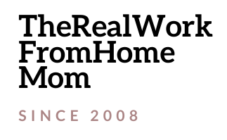
The majority of work-from-home job opportunities involve the use of a computer. With the rise of computer viruses, Trojans, and worms, it is important to make your computer secure. Regular computer scans should be included within your schedule.
Computer Updates
Regular computer updates are created to help you keep your computer secure. If your computer does not update automatically, then you should consider doing so. The computer will then automatically communicate with secure servers concerning updates and patches needed for your computer.
Settings for each computer may vary. Some will automatically download updates and show a message in your icon tray that an install is needed. Settings may automatically download and install. It is important to become familiar with how your computer handles updates.
Firewall and Virus Protection
Having an operating firewall and updated virus protection is very important to keeping your computer secured. The firewall will keep your computer from being “pinged” by threats that may target your computer.
Virus protection adds an additional layer of protection to your computer. Sometimes, when searching the internet or downloading files, your computer can “pick-up” a virus. Updating and running virus software is needed. The software will scan your computer for hidden viruses that could affect your computer.
Spyware and Adware Protection
Spyware and adware is another area of protection needed. Spyware and adware are usually little cookies, or files, placed on your computer when visiting specific sites. They may not be as dangerous, but over time they will slow your computer down. Spyware and Adware are designed to see where you are going on the internet. It provides a way to monitor your movements as it relates to the internet.
No-cost and Low-cost Protection
No-cost and low-cost protection is available to add defense in securing your computer. Computer updates automatically come with the computer. For example, if you purchase a computer with Windows 7, your computer has the ability to receive and install all relevant updates to that program.
Free virus protection is available for download online. There are also more enhanced programs available. For example, AVG is very popular and highly recommended virus protection software. They also have additional upgrades available that are well worth the investment. They are a tried and true company that stands behind their products.
Use Strong Password Protection
When creating passwords online, it is important to create strong passwords. Strong passwords will include at least eight characters; contain numbers along with symbols. It is highly recommended not to use your name in the password, or user name. Using parts of words is better than complete words. For example, it is better to use “bett08%ents” instead of “better08%z” for a password. It is also encouraged to use upper and lower case characters. For example, “Bett08%enTs” is much better than using “bett08%ents” as a password.
Other Safety Standards
There are a variety of other safety standards that will add protection to your computer and valuable data. Here are a few considerations:
- Lock your computer when leaving it.
- Do not “auto-save” your passwords online.
- Do not open questionable emails.
- Use network file sharing over local file sharing, if needed.
- Set your computer to lock automatically when the screensaver starts.
- Scan all files downloaded from the internet.
